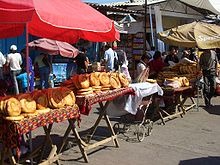Kyrgyzstan's New United Opposition Movement
By Arslan Sabyrbekov (the 19/02/2014 of the CACI Analyst)
At a meeting on February 12, the leaders of several political parties in Kyrgyzstan established a United Opposition Movement and elected an opposition member of the Kyrgyz Parliament, Ravshan Jeenbekov, as its leader.
“CACI Analyst, February 05, 2014”
Central Asian Qualms About Eurasian Union Mounting
By Stephen Blank (the 05/02/2014 issue of the CACI Analyst)
The current Ukrainian crisis has focused attention on Russia’s drive to construct a Eurasian Economic Union (EEU) and a customs Union as part of it. But Ukraine is by no means the whole story, as reservations if not resistance to the project mount in Central Asia. Both Kazakhstan and Kyrgyzstan have taken steps to resist Russian encroachments and to raise the price of their admission into this union. In January 2014, Kazakhstan's government launched a plan to re-privatize the crucial Kazakh banking sector, partly in order to shield it from the tactics used by Russian banks to buy up equity in distressed banks under EEU guidelines. Kyrgyzstan also displays an increased desire to force Russia to bargain for Kyrgyzstan’s adhesion to the Customs Union and EEU.
Kyrgyzstan Wants to Keep Its Wholesale Markets in the Customs Union
By Jamil Payaz (the 05/02/2014 issue of the CACI Analyst)
Kyrgyzstan has slowed down its accession to the Russia-led Customs Union after the Eurasian Economic Commission disregarded its request to include special preferences in Kyrgyzstan's roadmap. With an economy immensely benefiting from the transit of Chinese goods to the wider region, Kyrgyzstan is asking that its wholesale bazaars, Dordoi, Karasuu, and Madina, be granted free-trade-zone status and other support for the first years of its membership. However, it remains to be seen whether the Union members will eventually concede to Kyrgyzstan’s conditions, as free-trade-zones would undermine the Union’s very idea of protecting its market.

Protests in Kyrgyzstan Against Customs Union Entry
By Arslan Sabyrbekov (the 05/02/2014 issue of the CACI Analyst)
Kyrgyzstan’s entry into the Customs Union with Russia, Kazakhstan and Belarus is a hot topic in Bishkek as the recently created political party Reforma, with the support of civil society activists, organized a protest against the country’s entry into the Union. According to the protest organizers and participants, in the Customs Union Kyrgyzstan will lose its sovereignty, face restrictions on its political freedom and the prices for all commodities will rise by 25-30 percent.


